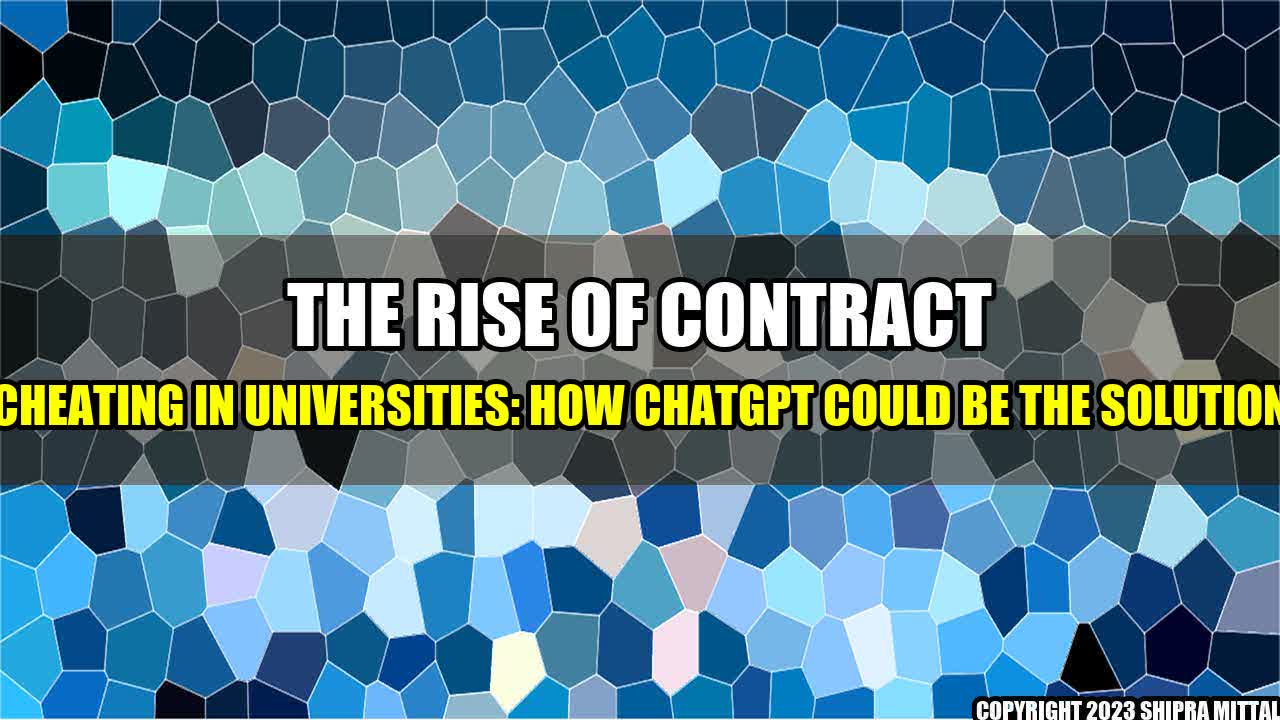
It was a beautiful day in May, and Jane, a promising senior at a well-respected university, was feeling the stress of impending finals. Her grades in her major were good, but she was struggling to keep up with the required general education courses. With the pressure mounting, she made a decision that would change her entire academic career: she paid a ghostwriter to write her final paper for her.
She was shocked at how easy it was to find someone online willing to do the work for her for a small fee. She was also thrilled with the results: she received an A+ on her paper and had more time to focus on her other classes. From that moment on, she never wrote another paper again.
Unfortunately, Jane's story is not unique. Contract cheating - the act of paying someone else to do your academic work - is on the rise, and it's leaving universities and educators scrambling for solutions. According to a recent study, contract cheating has increased by 15.7% since 2014. This is a significant problem for universities, as it undermines the integrity of academic degrees and makes it difficult to measure student learning.
ChatGPT is a new artificial intelligence tool that has the potential to help universities bust contract cheating. Here's how:
Universities can use ChatGPT as a preventative tool by integrating it into the assignment design process. For example, if a professor is designing a writing assignment, they could use ChatGPT to generate a list of potential topics and keywords. This would add an extra layer of security, as students would have a harder time finding pre-written papers that match the assignment. ChatGPT could also generate unique writing prompts that are tailored to a specific course, making it more difficult for ghostwriters to provide canned answers.
ChatGPT could also be used as a detection tool. Professors could upload a student's paper to ChatGPT, and the AI would compare it to a massive database of pre-written papers and internet sources. This would give educators a quick and accurate way to detect plagiarism and other forms of contract cheating.
Finally, ChatGPT could be used as an educational tool to help students understand the importance of academic integrity. By providing detailed feedback on student writing, ChatGPT could help students improve their writing skills and avoid plagiarism. Additionally, students could use ChatGPT to generate ideas for papers and explore new topics.
To illustrate how ChatGPT could help universities bust contract cheating, let's look at some quantifiable examples:
By introducing ChatGPT as a proactive tool, universities can start reducing these numbers and protecting the academic integrity of their degrees.
In conclusion, here are three points to remember about ChatGPT and contract cheating:
Education Technology
Akash Mittal Tech Article
Share on Twitter Share on LinkedIn